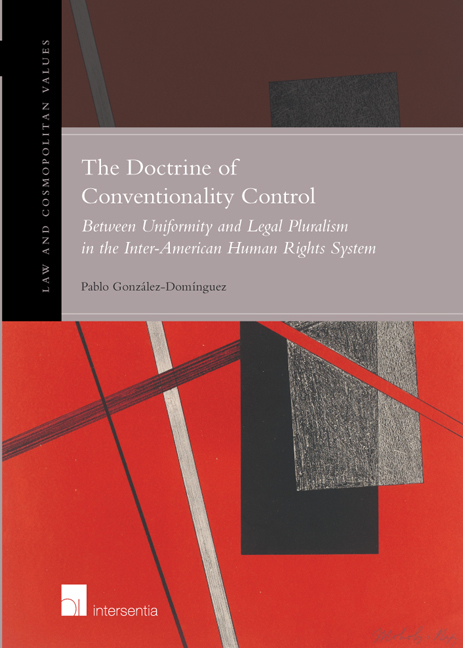 The Doctrine of Conventionality Control
The Doctrine of Conventionality Control Published online by Cambridge University Press: 11 October 2018
But just as the laws of each state have in view the advantage of that state, so by mutual consent it has become possible that certain laws should originate as between all states, or a great many states; and it is apparent that the laws thus originating had in view the advantage, not of particular states, but of the great society of states. And this is what is called the law of nations, whenever we distinguish that term from the law of nature.
Hugo Grotius The Law of War and Peace, 1625INTRODUCTION
There is no doubt that the doctrine of conventionality control constitutes one of the most relevant topics in the recent jurisprudence of the Inter-American Court of Human Rights. This relevance can be observed on the multiple occasions that the Court has made reference to conventionality control since 2006, in the various concurrent opinions of several judges of the Court who have discussed the topic, on the continuous publication of articles and books written by judges and scholars in Latin America and other regions, in the use of this doctrine by domestic courts – for instance – in Argentina and Mexico, and in the several academic and professional forums organized by governments and professional institutions to inform legal practitioners and judges about conventionality control. The production of legal materials on this doctrine is such that it is possible to consider it as an autonomous international legal institution specific to the Inter-American System of Human Rights. However, notwithstanding the enormous volume of jurisprudential and academic commentary on the origins and different elements of the doctrine of conventionality control, little has been said about its controversial nature. With the exception of a few scholars who have developed short – although well-reasoned – critiques of conventionality control, no attempt has been made to seriously evaluate the legal basis of conventionality control if seen as an international institution governed by public international law.
One may ask: why do this analysis if conventionality control is a good idea and if the doctrine has been well received by some courts and scholars? Would it not be better simply to ignore those who do not agree with conventionality control, qualifying their arguments as invalid for being against the evolution of human rights and the strengthening of its mechanisms of protection? Not in my view.
To save this book to your Kindle, first ensure [email protected] is added to your Approved Personal Document E-mail List under your Personal Document Settings on the Manage Your Content and Devices page of your Amazon account. Then enter the ‘name’ part of your Kindle email address below. Find out more about saving to your Kindle.
Note you can select to save to either the @free.kindle.com or @kindle.com variations. ‘@free.kindle.com’ emails are free but can only be saved to your device when it is connected to wi-fi. ‘@kindle.com’ emails can be delivered even when you are not connected to wi-fi, but note that service fees apply.
Find out more about the Kindle Personal Document Service.
To save content items to your account, please confirm that you agree to abide by our usage policies. If this is the first time you use this feature, you will be asked to authorise Cambridge Core to connect with your account. Find out more about saving content to Dropbox.
To save content items to your account, please confirm that you agree to abide by our usage policies. If this is the first time you use this feature, you will be asked to authorise Cambridge Core to connect with your account. Find out more about saving content to Google Drive.